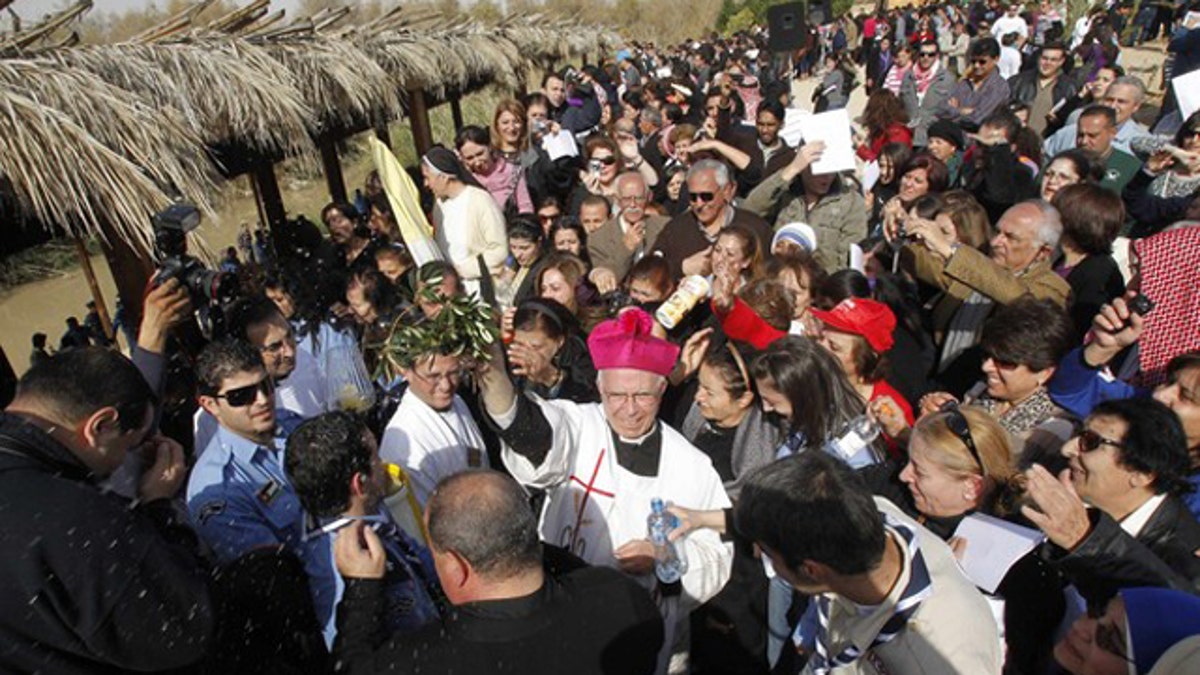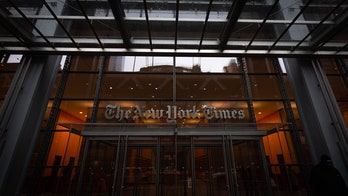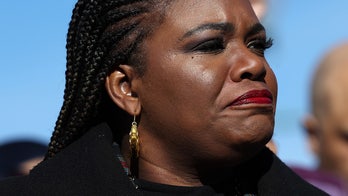
A Christian priest blesses worshippers during a mass at a baptism site on the Jordan River Jan. 14. (Reuters)
The House is on the verge of voting to create a new diplomatic post charged with defending religious freedom overseas, following a string of attacks against religious minorities in the turbulent Middle East and beyond.
The envoy would be charged with monitoring discrimination in dozens of countries, including in Afghanistan, Pakistan, Iraq, Iran, Egypt and Libya, among others.
According to the legislation, the new diplomat -- to be appointed by the president -- would be tasked with monitoring discrimination and religious violence against minorities and working with foreign governments to deal with "inherently discriminatory" laws.
The envoy would also work with nongovernmental organizations and report back to the secretary of state on those issues. The position would be separate from the sitting "ambassador-at-large" for religious freedom.
Lawmakers have not said who they have in mind for the job, but the House is heading for a vote on the position on Friday.
Rep. Frank Wolf, R-Va., who authored the proposal, said Wednesday that freedom of religion in the Middle East and Near Asia is "under assault."
"If the international community fails to speak out, the prospects for religious pluralism and tolerance in the region are bleak," he said on the floor.
The Obama administration will make the choice as to who to give the daunting task of reconciling religions in a hotbed of sectarian strife. The proposal to create the role has bipartisan support from a range of lawmakers, including Christian conservatives.
Wolf aide Kalinda Stephenson said the congressman does not have anybody currently in mind for the job. Asked whether lawmakers would look for somebody of a particular denomination, she said: "I don't think there's a preference."
Outside organizations that support the creation of the position are mulling over who would be a good fit.
William Murray, chairman of the Religious Freedom Coalition, said his group would recommend John Hanford, the former "ambassador-at-large" for religious freedom, if the new envoy position is created.
Murray said Hanford, who served in the State Department during most of the George W. Bush administration, has the experience dealing with heads of state to excel at the new role.
"He is already extremely well-versed and has the experience to deal at that level," Murray said. Hanford used to serve on the ministry at a Presbyterian church in Virginia before his days in government -- but Murray said the denomination of the envoy would not matter.
The Iraqi Christian Relief Council is working with the Iraq Sustainable Democracy Project to compile a list of possible candidates.
Juliana Taimoorazy, president of the relief council, without disclosing which candidates they're thinking of, said the group wants somebody "dedicated and passionate" in the post. In an email, she cited concern about "the plight of the Christians in the Middle East, especially in Iraq."
Stephenson said the need for such a position was reinforced to her boss on a recent trip to Egypt, where members of religious minorities expressed concern about their rights.
"With all the political upheaval that's going on in the Middle East ... they feel it's created a political vacuum, and it's left these religious minorities particularly vulnerable," she said.
The region has been rocked by several attacks on religious minorities over the past year.
Dozens of Iraqi Christians were killed in an attack on a Baghdad church last October. Months later, a Coptic Christian church in Alexandria, Egypt, was the scene of a deadly bombing after a New Year's Eve service.
That was followed by the assassination this year of Pakistan's only Christian Cabinet member, Shahbaz Bhatti. A Wolf spokesman described Bhatti as a "close, personal friend" of the congressman.
Other minorities ranging from Baha'i to Jews have also been targeted across the region.




